- The Appalachian Spirit: 49 Winchester at Two Step Inn Festival 2024
- Wyatt Flores at Two Step Inn: Photos and Review
- Legendary Neal McCoy at Two Step Inn: Review and Photos
- Mark Chesnutt at Two Step Inn: Photos and Review
- Rising Star Sadie Bass Shines at the Faster Horses Festival
- Sawyer Brown at Faster Horses: A High-Octane Celebration of Four Decades
One-on-One With Former Eagles Guitarist Don Felder (Part 2)
(This is Part 2 of my interview with legendary guitarist Don Felder. Click HERE for introduction and Part 1!)
Chris: I’d like to switch over to Road to Forever, if you don’t mind. I read your book when it came out a few years ago…so when I listened to the record the first thing I noticed was the subject matter of lyrics, which were focused on many of the experiences in the book. I had read that you were going through a divorce at around the same time you had left the Eagles. During the time you were synthesizing these ideas and putting them into songs, did you see any parallels between a romantic relationship and a band relationship?
Don: Well, there’s a great deal of similarity between those two relationships, [especially] when they get to the point where they end. The heartbreak of them both was difficult. So I didn’t want to write specifically about either one. The only one that I wrote specifically about my separation and divorce from my wife was called “Fall From the Grace of Love.” I think so many people go through that human experience; teenage dating and having your heart broken, falling in love, going through the marriage, and five years later you’re getting divorced. It’s a very common thread in humanity. I wanted to write about things I had gone through, that I knew other people could resonate with and respond to. And so, even the songs like “Wash Away,” when I wrote all that music and I started writing the lyrics, I got to a point where I thought, “You know, I think I want some help finishing these lyrics.” So I called Tommy Shaw, who had also gone through a divorce. So I knew he could relate exactly to the subject matter. So Tommy came over and in three days we wrote the lyrics to “Wash Away,” “Heal Me,” and this third song which sounds like it should’ve been originally on the first Crosby Stills and Nash and Young record. It didn’t really fit onto this CD of mine. Tommy was doing a country album at the time, and it didn’t really fit on that either. So we put it on the shelf. Possibly for the next record I’ll revive it and see if CSN will come in and sing it with me. We’ll do a “CSNF” song.
Chris: Ha-ha! That would be really cool. Yeah I guess sometimes you may write a great song, but it just doesn’t fit with the flow of the record. But it’s still great that you have it. So the song “Money” on your latest album has a very focused theme. Are there any overtones having to do with your past experiences with the Eagles in that song? Or was that just a general sort of commentary of what’s happening currently with corporate America?
Don: The song is not really aimed at the Eagles. I was writing those lyrics right in the middle of this last, very serious recession in the United States. And I saw a lot of difficult times for a lot of difficult people – single moms having trouble feeding their kids, guys working their fingers to the bone and just barely getting by, thieves on Wall Street ripping off the banking industry, and politicians not doing anything about it. I wanted it to be more of a national comment on the economy, and how brutal it had been for everyone. A good friend of mine, who’s very wealthy, lives in Monterey; he and I would go up and play golf, and we’d talk about all sorts of things. And he was telling me, “You know Don, when it comes to money…you have no friends.” And I said, “What do mean?” He said, “Every time I’ve done something to try to help people by lending them money, or giving them a position somewhere, the friendship gets destroyed because of the money that’s involved.” People shy away from you if you owe them money, or if they owe you money. They’re afraid to really be frank with you, or honest with you, for fear that you’ll say, “Well I loaned you money! How can you say that?” So, it has a negative impact on relations.
Chris: Good point. It kind of reminds me of a quote from Shakespeare: “Neither a borrower nor a lender be” or something like that. [Don laughs.] But it’s difficult not to think about the Eagles in relation to this song when I know from reading your book that you had a lot of money-related issues with your departure from the band.
Don: Yeah, but that was not the thrust of that song. A couple of other guys have asked me about the song, “You Don’t Have Me” and whether it was a pointed comment on my ex-partners. It absolutely was not. A very smart friend of mine told me once: “You know, there are two types of people in this world. There are givers, and there are takers.” He said, “I prefer to be a giver. I give things, and give my time, my money, and my support out of love. But takers have a different approach; they’ll take, and take, and take, until you finally get to the point where you have to say, “You know, this is not a fair and balanced relationship.” And when you get to that point, you have to say, “I don’t know what you’re looking for, you’ve got everything you could possibly have in life…but you don’t have me.” That’s when you finally leave.
Chris: It’s been well documented in your book and other places that during the “Hell Freezes Over” tour, often you were in a situation where you weren’t even on speaking terms with some of your band mates. How does a musician negotiate that over such a long term? Were there any coping mechanisms that you had to employ in those situations?
Don: Well, it was a planned segregation. [Eagles’ manager] Irving Azoff decided that keeping everybody apart was the way to prolong – or prevent – any sort of explosive relationship. We were in different cars going to and from the plane, and on the plane there were five different compartments. Everybody went in their separate compartments and read or watched television. Backstage there were also five different dressing rooms, and everybody had their own car that went from the hotel to the plane and from the plane to the show. So it was quite isolated, and indeed I think it worked to a certain point in that it put more space in between everybody – both good and bad. When you do that, you really break any sort of “band bond” that you have. In the old days, we would have band meetings every week in some hotel room. We’d talk about stuff, like, “What do you think about this? What do you want to do with this? I’ve got this idea. What about that? I’ve got this idea for a song.” We were just together on the road. But it was an effort to try and prevent any further friction between any of the band members, including the friction between Henley and Frey – which had gotten massive through the very end of The Long Run. The name “Hell Freezes Over” comes from Henley’s answer when he was asked if he’d ever work with Glenn Frey again. So there have been times of great friction and tension between multiple people in the band. And in effort to try and stall or prevent that, that was the isolation approach. I don’t think it worked; I think it just put us further apart, to tell you the truth.
Chris: Yeah, I could definitely see that. A primary reason that people join bands is because they enjoy playing music with each other. A band dynamic, bad or good, eventually translates to the audience as well.
Don: Yeah, you’re right. I did want to say I have really reached a place where I’ve reconciled inside my own heart and mind the events that took place and then end of my involvement with the Eagles. Part of that process was writing the book and writing this CD; it was a very liberating and healing process for myself. I really still hold no kind of animosity, or anger, or resentment. I don’t want to carry that going forward. That’s what the song, “Wash Away the Pain” is about, to heal me from all of those wounds that life gives us as we go through the heartbreaks of relationships and the things that don’t work out as you planned. So, you have to find a way to reconcile that and move forward with a smile on your face for the rest of your life.
[youtube id=”OXRMoDR0Mv8″ width=”620″ height=”360″]
Chris: On Road to Forever you find yourself singing lead vocals, which is something you didn’t really do a lot with the Eagles. Here you are, stepping out and showing your own voice. This is symbolic in many ways, don’t you think?
Don: Well, yes and no. I mean, Don Henley is probably one of the best rock singers alive today. He’s got a stellar voice. I really admire his talents; his writing, singing… just his whole creative thing is brilliant to me. So if I were to choose to have Don Henley sing a song or me sing a song…unless the song was a really personal song like these songs on this record, I would always default and say, “You know Don, you singing this will sound better than me.” I’m not known as a fabulous lead singer; but when it came to expressing the emotions and feelings on my record, I had to use my own voice. I wasn’t going to hire some other singer to sing my songs about my life, you know?
Chris: Yeah, it was definitely fitting; the whole thing sounds great, I really enjoyed the record. I really appreciate your time today, and especially how honest you were about everything you’ve been through.
Don: Chris if we are in an area near you guys, please come down to the show. I’d like to have you come as my guest, shake your hand, and thank you personally for doing this with me today.
Chris: Don that is very generous of you, and I will certainly take you up on your offer. It would be great to meet you.
Don: Okay Chris, all best.
Chris: Okay Don, good bye!
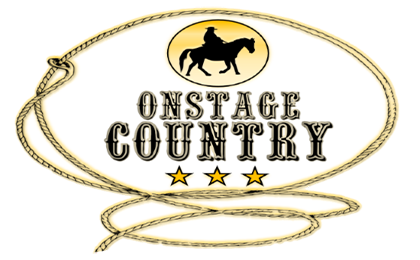
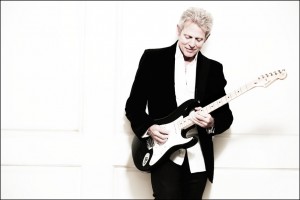
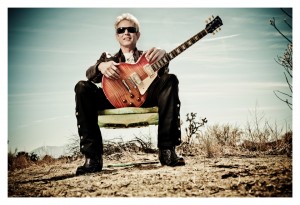
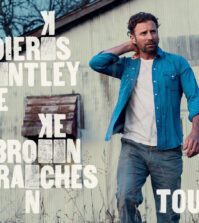
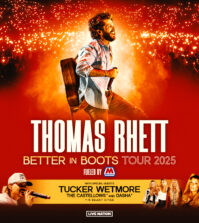


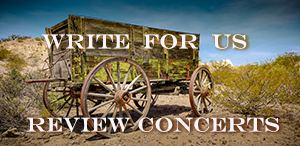
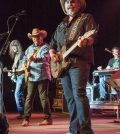
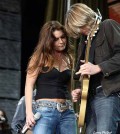
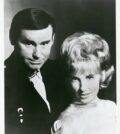
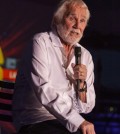
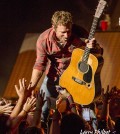
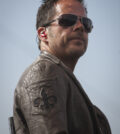





11 Comments
You must be logged in to post a comment Login